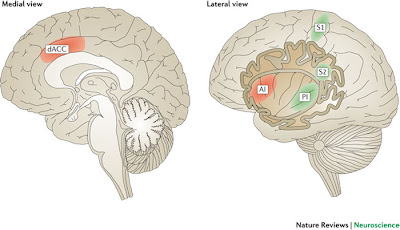Neuroethics Journal Club: Neural Correlates of Negative Stereotype

Our everyday perceptions of others can potentially be biased by cultural stereotypes. However, research has suggested that an initial, and often negative, stereotype can be downregulated via a highly connected neural network. While this regulatory process has been studied under neutral conditions, for the third journal club of the semester Neuroscience graduate student Kim Lang led a discussion about regulation of this neural network when White individuals are not under neutral conditions, but actually primed for negative African American stereotyping. A recent paper published by Forbes et al. used functional magnetic resonance imaging (fMRI) to study the amygdala, the prefrontal cortex (PFC), and the orbitofrontal cortex (OFC), three highly interconnected brain regions important for stereotyping and bias. Studies have shown that the amygdala, involved in arousal, is activated immediately when encountering a so-called out-group member. This first response can be downregulated though if...
